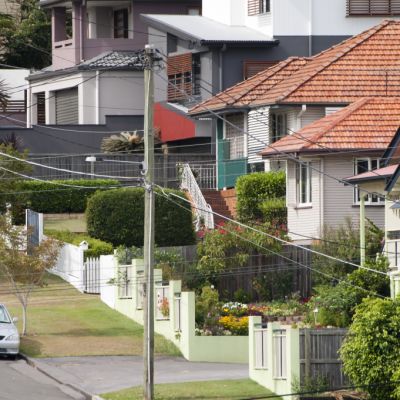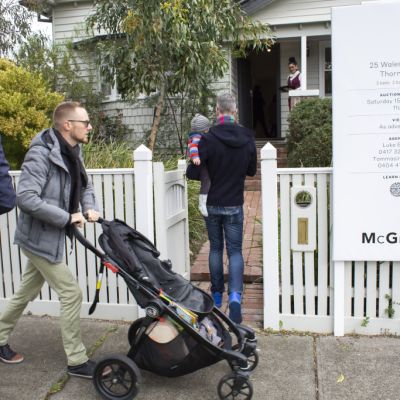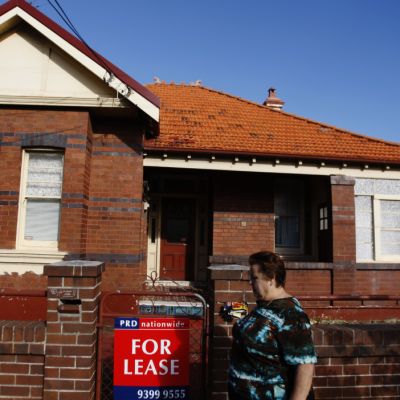Landlords urged to slash rents to get tenants into vacant properties
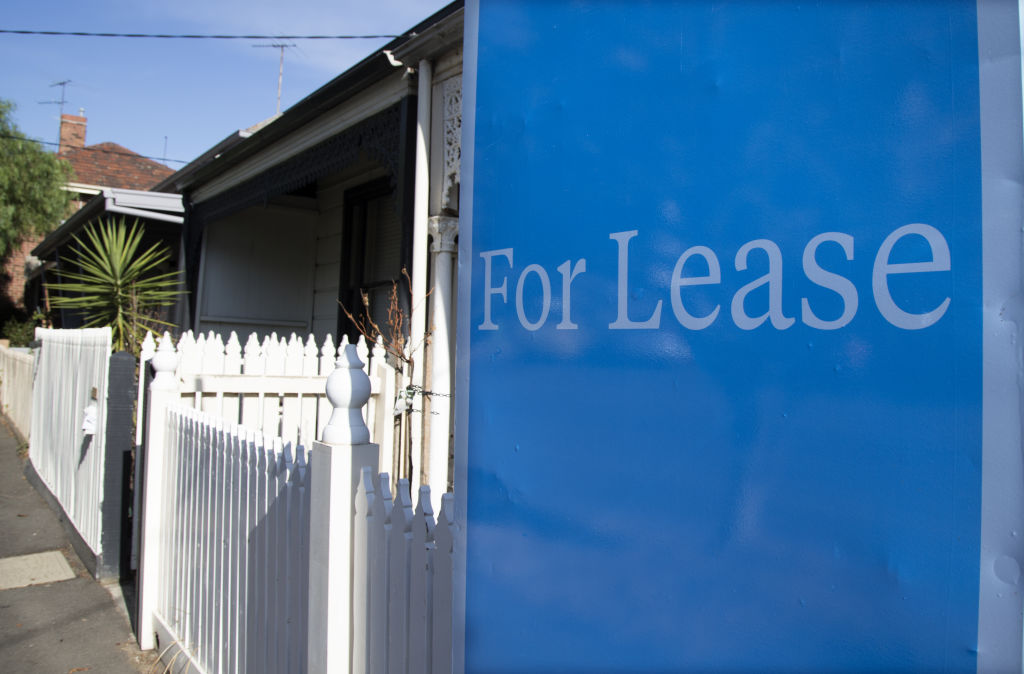
Landlords are being urged to slash rents in order to lease out vacant properties before it is too late, as the economic fallout from the coronavirus deepens daily.
With soaring unemployment and potential further lock-downs on the horizon, property managers are warning investors — particularly those with vacant homes — to act sooner rather than later, while those with existing tenants are being encouraged to negotiate reduced rent, if need be.
“Landlords should do everything necessary to get their property leased including reducing rent,” said Emily Sim, Ray White’s chief executive of property management. “If there is a future lock-down they will lose the ability to lease these vacant properties.”
With renting out a property likely to become more difficult, particularly in the event of a lock-down, Ms Sim said reducing rent or offering shorter-term leases now could help landlords in the weeks and months to come.
She said landlords had been receptive to this so far, with some offices dropping asking rents by $50 a week on all vacant properties to get tenants through the door.
“Landlords [are even] happy to take a 12-month lease at a $50 a week decrease,” Ms Sim said.
Property managers have already been inundated with requests for rental relief in recent days. While the federal government is expected to make an imminent announcement on rental support, negotiations between landlords and tenants are underway case by case basis many agencies.
“There’s no blanket response,” Ms Sim said.
While some landlords could afford to lower rents, others relied on the income to fund their retirement or had mortgage repayments they could not afford to cover on their own. She said tenants and landlords were being urged to look at what support may already be available, through welfare payments, mortgage freezes or their landlord insurance.

Rachel Beadman, head of property management at Phillips Pantzer Donnelley in Sydney’s eastern suburbs, said landlords were trying to negotiate results that would work for both parties.
“From the landlords we’ve spoken to, they’re very disappointed, they’re concerned for themselves but also their tenants, and rather than have a vacancy they are heeding our advice, which is to negotiate and keep your tenant,” Ms Beadman said.
From a portfolio of just under 1000 properties, she received more than 40 requests for rental relief over two days, mostly due to tenants being underemployed or made redundant.
“[We’ve] had requests for everything from [a rent reduction of] $70 a week to a 50 per cent reduction,” Ms Beadman said.
There is still solid demand for rental properties, she noted, having taken holding deposits on eight out of 16 rental properties shown at the weekend.
She suspected this was partly due to the more affordable price point of the rentals, which made them more likely to be snapped up faster. She was also seeing greater interest in larger homes, as people clustered together to save money.
While reports a return of Airbnb properties to the rental market could boost the number of available rentals, Ms Beadman said some landlords were also taking property off the market to house family members in financial difficulty.
Landlords with vacant homes were being warned they would need to react to the market, Ms Beadman said.
“I can see that today we have done two rent reductions for properties on the market because for those owners we are advising them to get them leased before we go into a lock-down situation,” she said.
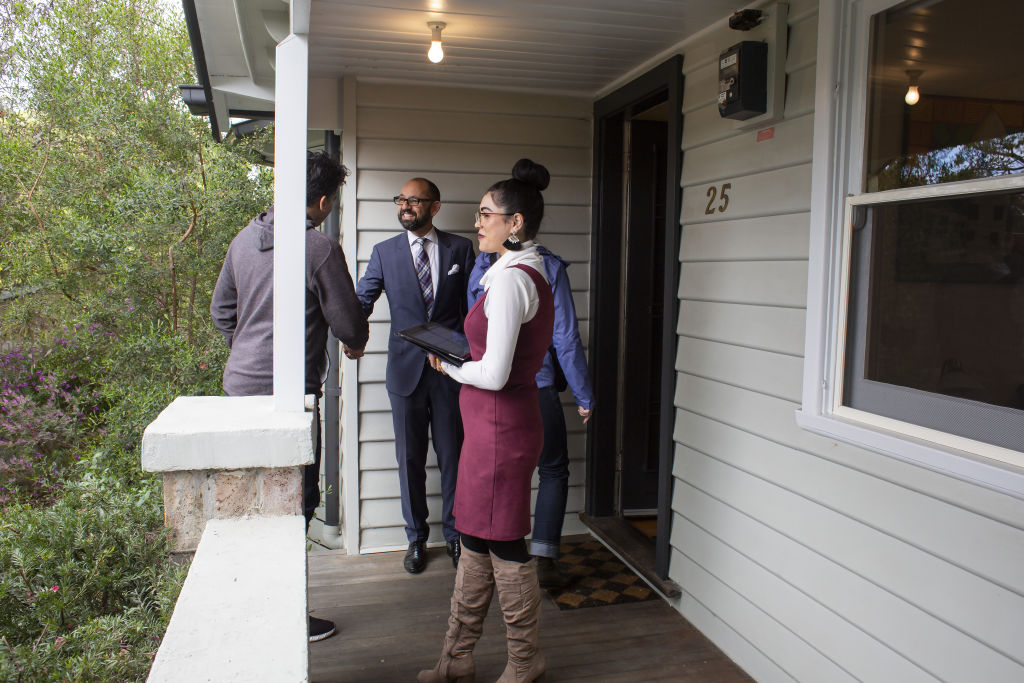
Michael Conolly, head of network property management at McGrath, said as of mid-afternoon Tuesday there had been 65 requests for rent reductions across some 8200 rental properties managed by company-owned offices in Queensland and NSW.
Mr Conolly said all requests were approved by landlords, with reductions ranging from $50 to $200 a week. The median was about $100.
He said some vacant properties were starting to be advertised with two weeks free rent or reduced rent, but noted this was not widespread.
“A lot of owners are being amazing and allowing reductions,” said The Agency’s national director of property management Maria Carlino, who noted those who could afford it were reducing rents for an initial three-month period.
“At this point in time, we haven’t had any [tenants] requesting to leave, which is good,” she said.
Some tenants who had given prior notice to vacate a property, had decided to stay – in most cases renewing their leases after negotiation a rent reduction, she said. All tenants seeking assistance had committed to paying above 50 per cent of their rent.
There was also increased demand from recent sellers who now wanted to rent instead of buy a property.
Ms Carlino said owners of vacant properties were concerned the time taken to lease a property would span out.
“They’re taking action, listening to our advice and working with us to give us as much leeway and to make the property as attractive as possible,” she said.
We recommend
We thought you might like
States
Capital Cities
Capital Cities - Rentals
Popular Areas
Allhomes
More
